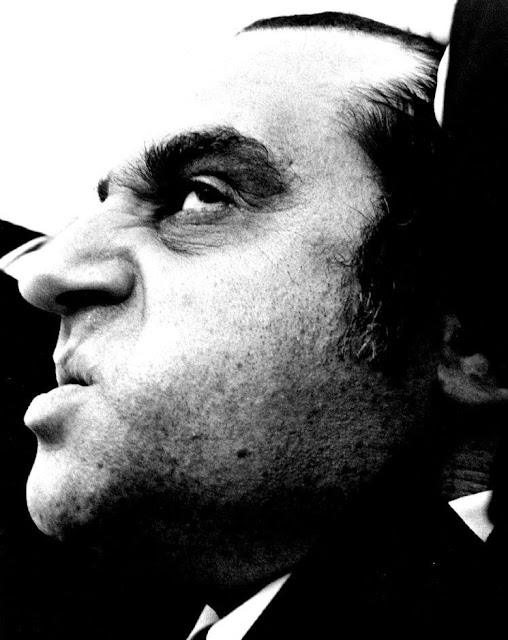Ed MacGregor: Self-Reliance

I think I have always loved to hear people’s stories. Perhaps this began when I was a boy; my father was a great storyteller for whom a book wasn’t necessary and the “Truth” was always a relative term. He also spoke to nearly everyone he met, “Krajcik – Kray-check, is that how you say it Paul? Is that a Polish name? Oh, Slovak. Did your people come from Czechoslovakia, then? When?” He’d be off on a discussion of the person’s background, which I later realized was how he was so good at remembering people’s names.
So I learned from my father to listen to people’s stories. I don’t do it as much as I used to. Perhaps I became sensitive to how it embarrassed others, (including my kids when they were growing up); perhaps, I just got busy or more introverted as I aged.
Some of the conversations I’ve had over the years have stuck with me. One was with Ed MacGregor.
I was in my late twenties when I first met Ed. It was before I even thought of becoming a consultant. I was a booking agent for speeches on college campuses and business meetings by famous people, Dick Gregory, Ralph Nader, H. Ross Perot, Erica Jong, Margaret Mead and many much less, famous as well. I had just moved from an agency in suburban Boston to one downtown. I wore three piece suits to work because I had just read John Molloy’s book, Dress for Success, much to the amusement of the rock music agents down the hall at Lordly & Dame. “Here comes ‘Mr. Dress-for-Success;’ we’re more comfortable with success-through-mess.’”
I don’t remember when I first did it, but I walked across the Boston Public Garden to the Ritz Carlton Hotel, not the one on Avery St, where it is today, but the 1927 grand dame building on the corner of Newberry and Arlington Streets, pictured above, that is the Taj Hotel today. (It may have even been before the extension building on the right was built.) Lunching at the Ritz was entering another world. Customer Service was an almost spiritual experience; I felt like a king.
One time, wandering around the lobby, I wandered down the steps into the basement and was intrigued to find a biscuit-colored marble throne that was the Ritz shoe shine stand. Off to the side in a white shirt, open at his size 19 neck, in black pants protected by a navy blue apron stood Ed MacGregor, who shined Ritz Carlton guests’ shoes. Ed had a stack of shoes that housekeeping brought him each morning, but the walk-in customer took priority. Ed gestured to the marble throne in an elegant way that seemed like it should have been impossible, with his dinner plate sized hands. “Shine, sir?” And so began a once-a-week 15-20 minute mini-vacation, while I listened to Ed’s stories and he made my Florsheim toe-caps gleam like black chrome.
Ed was about 6’5” and probably weighed about 275 lbs. He never looked fat, just solid, like a refrigerator or a safe. He was bald and what little white hair he did have around his ears was buzz cut short. He had longer hair in his ample ears than my mustache sported at that point. For such an imposing man, he was incredibly soft spoken. I found myself leaning in just to be sure I understood what he was saying.
I was 28; I was unsure of his age -60? 70? I think I asked him if he had always done this work.
“Oh, God Lord! No! This is my second career.”
“What was your first?” I asked in my eager fresh-faced voice.
“Engineer.”
“Oh - mechanical, civil, electrical?”
“Trains,” he said softly. And so began the conversation.
I don’t know how many times I went to see Ed, but I do remember the stories. He began working on trains in 1919 and worked his way up to engineer. “Yeah they gave me some courses, but most of what I learned, I learned from the ‘school of hard rocks’ when an engineer or a fireman would try to hammer something into the rocks, they said were in my head. I did get certified though, had to.”
He told me the details of locomotives –he’d learned on steam trains (“Noisy and dirty –you never got your face clean”) and had seen the transition to diesel (“Like a big truck, really – just as noisy as steam, cleaner, that is until somethin’ broke down, oil’s as hard to get off your hands as coal-soot is off your face.”)
Ed had started with the Great Northern Railway, which competed with the Northern Pacific line and the Chicago, Milwaukee, St. Paul line. On March 2, 1970, the three lines were merged into Burlington Northern. “I think they used my pension to fund the merger or at least some executive’s golden handshake,” he said with a chuckle, “so now I get to shine your shoes, young Mr. Alan.”
Ed didn’t seem bitter, his life circumstances were “just the way it is.”
My all-time favorite story was when he talked about the “Great White Way.”
“It was an electric train, extra-rail in some places, overhead connection in some others. We ran freight and some passengers from Minneapolis all the way to Seattle in the 1920s, powered entirely by small scale hydro from mountain streams. It was so quiet; we’d come up upon rabbits and deer and have to blow the horn. They’d have never heard us coming. We’d blow the horn and they’d scamper off the tracks and just stand there looking as we went by. It was magic.”
“It was powered by hydro-electric power?”
“Yep. A small wheel based unit would fit in a stream. It didn’t raise the temperature of the water enough to hurt the fish. It was only about the size of your briefcase. They had hundreds of them, I don’t know, maybe thousands.”
“What happened to that technology?”
“It went away in the Depression, no way to make money on it unless you can do it on a mass scale and people are lazy. They like it when some big corporation generates power for everybody.”
One day in the wintertime, I hadn’t been to see Ed for a long while. My shoes were showing the effects of a Boston winter, and a 20-something-year-old’s attitude towards galoshes and overshoes.
“Ed, I’m sorry. I’ve been busy. I haven’t had the time to get here. Can you bring ‘em back?”
Ed looked at the white salt lines on the leather uppers, the slush-mud caked along the soles and growled, “ya know, Alan, you can to this stuff yourself.”
Ed brought my ruined shoes back to pretty good condition, considering. I went to see him some more after that despite my embarrassment. I never let my shoes get in that condition again.
I’ve told this story to clients a lot, to executive groups, to continuous improvement specialists in training workshops – usually in a more abbreviated form, because what I try to convince my clients is that, despite how grateful I am for the work and the opportunity to help them, self-reliance in individuals and in corporations is a virtue that leads people to succeed in difficult or uncertain times – in times of change. Consultants may come and go, outsourcing may or may not work, but if you learn and maintain your skills, you will survive.
“Ya know, you can to this stuff yourself.”
"
Articles from Alan Culler
View blog
Change Leader? Who Me? Hard-Earned Wisdom for Those New to Leading Change · is finally published. He ...

David Frye's impression of Richard Nixon · When I was a college market speakers agent, I sold to you ...

Sell is a four-letter word · Salespeople get a bad rap. The salesperson stereotype, is a gladhanding ...
Related professionals
You may be interested in these jobs
- Work in company
Director of Marketing & Communications (63579)
Volunteers of America Chesapeake and Carolinas
Description · COMPANY OVERVIEW · Volunteers of America Chesapeake & Carolinas (VOACC) promotes self-reliance and inspires hope. As a church without walls, we provide personalized housing, ministry, health, and human services that benefit vulnerable individuals, families, and comm ...
Presidents Drive Lanham, Maryland, United States1 week ago
-
The Director of Marketing & Communications is responsible for developing, · executing and sustaining VOACC's enterprise-wide marketing communications · and public relations strategy. This role ensures consistent mission-aligned messaging across internal and external audiences whi ...
Lanham1 month ago
-
Position Overview · We are seeking a dedicated and energetic Behavior Liaison to join our team on a grant-funded, temporary basis. Over the past several years, our school has experienced a significant increase in the number of students demonstrating intensive needs in social-emo ...
Wilmington, NC1 week ago


Comments
Alan Culler
8 years ago#8
ever the catalyst, Ali \ud83d\udc1d Anani, Brand Ambassador @beBee Thank you. I will think on it
Alan Culler
8 years ago#7
Thank you, Ali \ud83d\udc1d Anani, Brand Ambassador @beBee for your support of my storytelling. It is a mode I fall into easily, much to the chagrin of my children and some colleagues -when time is short and the old man starts telling a story . . . again. Judging from the many people who read and comment on your stories and musings (including me) you may not have this experience. I read fantasy and science fiction sometimes -mixed in with books on business and science -I am currently reading Neil Stephenson and Nicole Galland's book The Rise and Fall of Dodo, wherein they posit that magic, as practiced by witches, shamans, and storytellers, comes from facilitated connections to the multiple parallel universes used to explain quantum effects. Perhaps some stories resonate because they mirror what's in what Jung called our collective unconscious -thought is powerful because it is shared by many. Anyway thank you for your comments and your continued catalytic effect on my thinking. Alan
Alan Culler
8 years ago#6
This is high raise indeed from such a wordmaster as you, my dear friend Ali \ud83d\udc1d Anani, Brand Ambassador @beBee I'm glad you enjoyed. Ed's story
Alan Culler
8 years ago#5
Thank you so much Tausif, you clearly absorbed Ed, the survivor with the positive attitude, the teacher who could tell the story of his life and give a very pointed lesson directly as well. I appreciate your engagement and support.
Alan Culler
8 years ago#4
True Jerry, but perhaps one who teaches, not just does for us. Thanks for your comment and your support.
Jerry Fletcher
8 years ago#3
Alan Culler
8 years ago#2
Thank you Joyce
Joyce 🐝 Bowen Brand Ambassador @ beBee
8 years ago#1